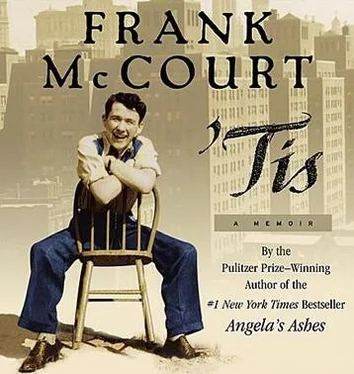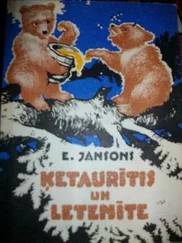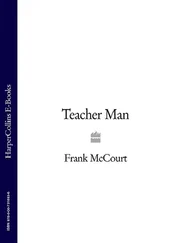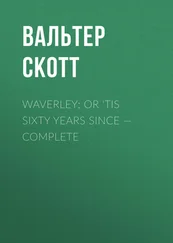Frank McCourt - 'Tis
Здесь есть возможность читать онлайн «Frank McCourt - 'Tis» весь текст электронной книги совершенно бесплатно (целиком полную версию без сокращений). В некоторых случаях можно слушать аудио, скачать через торрент в формате fb2 и присутствует краткое содержание. Жанр: Старинная литература, на английском языке. Описание произведения, (предисловие) а так же отзывы посетителей доступны на портале библиотеки ЛибКат.
- Название:'Tis
- Автор:
- Жанр:
- Год:неизвестен
- ISBN:нет данных
- Рейтинг книги:3 / 5. Голосов: 1
-
Избранное:Добавить в избранное
- Отзывы:
-
Ваша оценка:
- 60
- 1
- 2
- 3
- 4
- 5
'Tis: краткое содержание, описание и аннотация
Предлагаем к чтению аннотацию, описание, краткое содержание или предисловие (зависит от того, что написал сам автор книги «'Tis»). Если вы не нашли необходимую информацию о книге — напишите в комментариях, мы постараемся отыскать её.
'Tis — читать онлайн бесплатно полную книгу (весь текст) целиком
Ниже представлен текст книги, разбитый по страницам. Система сохранения места последней прочитанной страницы, позволяет с удобством читать онлайн бесплатно книгу «'Tis», без необходимости каждый раз заново искать на чём Вы остановились. Поставьте закладку, и сможете в любой момент перейти на страницу, на которой закончили чтение.
Интервал:
Закладка:
Mam, do you know the cost of transporting someone your size?
Well, she said, reduce me.
The funeral counselor is not amused. He says we could do it for eighteen hundred dollars, embalming, viewing, cremation. Malachy asks why we have to pay for a coffin if it’s going to be burned anyway and the man says it’s the law.
Then, says Malachy, why can’t we just put her in a Hefty trash bag and leave her outside for collection?
We all laugh and the man has to leave the room for a while.
Alphie observes, There goes a life of extreme unctuousness, and when the man returns he looks puzzled at our laughter.
It is arranged. My mother’s body will be laid out in her coffin for a day so that the children can see and say good-bye to a dead grandmother. The man inquires if we’d like to hire a limousine to attend the cremation but no one except for Alphie is inclined to travel to North Bergen, New Jersey, and even he changes his mind.
In Limerick Mam had a friend, Mary Patterson, who said, Do you know what, Angela?
No, what, Mary?
I often wondered what I’d look like when I died and do you know what I did, Angela?
I don’t, Mary.
I got myself all dressed up in my brown habit from the Third Order of St. Francis and do you know what I did next, Angela?
I don’t, Mary.
I laid down on the bed with a mirror at the end, crossed my hands with the rosary beads around them, and closed my eyes and do you know what I did next, Angela?
I don’t, Mary.
I opened one eye and took a little look at myself in the mirror and do you know what, Angela?
I don’t, Mary.
I looked very peaceful.
No one can say my mother looks peaceful in her coffin. All the misery of her life is in the face bloated from hospital drugs and there are stray tufts of hair that escaped her plastic razor.
Maggie kneels by me, looking on her grandmother, the first dead body in her ten years. She has no vocabulary for this, no religion, no prayer, and that’s another sadness. She can only look at her grandmother and say, Where is she now, Dad?
If there’s a heaven, Maggie, she’s there and she’s queen of it.
Is there a heaven, Dad?
If there isn’t, Maggie, I don’t understand God’s ways.
She doesn’t understand my babbling and neither do I because the tears erupt and she tells me again, It’s all right to cry, Dad.
When your mother is dead you can’t be sitting around looking mournful, recalling her virtues, receiving the condolences of friends and neighbors. You have to stand before the coffin with your brothers Malachy and Alphie and Malachy’s sons, Malachy, Conor, Cormac, link arms and sing the songs your mother loved and the songs your mother hated because that’s the only way you can be sure she’s dead, and we sang
A mother’s love is a blessing
No matter where you roam,
Keep her while she’s living,
You’ll miss her when she’s gone.
and
Goodbye, Johnny dear, when you’re far away,
Don’t forget you dear old mother
Far across the sea.
Write a letter now and then
And send her all you can
And don’t forget where’er you roam
That you’re an Irishman.
Visitors look at each other and you know what they’re thinking. What kind of mourning is this where sons and grandsons sing and dance before the poor woman’s casket? Don’t they have any respect for their mother?
We kiss her and I place on her breast a shilling I had borrowed from her long ago and when we walk the long corridor to the elevator I look back at her in the coffin, my gray mother in a cheap gray coffin, the color of beggary.
56
In January 1985 my brother Alphie called to say there was sad news from our cousins in Belfast, that our father, Malachy McCourt, had died early that morning at the Royal Victoria Hospital.
I don’t know why Alphie used the word sad. It wouldn’t describe how I felt myself and I thought of a line from Emily Dickinson, After great pain a formal feeling comes.
I had the formal feeling, but no pain.
My father and mother are dead and I’m an orphan.
As a grown man Alphie had visited our father out of curiosity or love or whatever the reasons he had for wanting to see a father who had abandoned us when I was ten and Alphie barely one. Now Alphie was saying he was taking a flight that night for the funeral next day and there was something in his voice that said, Aren’t you coming?
That was softer than, Are you coming? less demanding, because Alphie knew the tangled emotions of himself and his brothers, Frank, Malachy, Michael.
Coming? Why should I fly to Belfast to the funeral of a man who went off to work in England and drank every penny of his wages? If my mother were alive would she go to the funeral of one who had left her in beggary?
No, she might not go to the funeral herself but she’d tell me to go. She’d say no matter what he did to us he had the weakness, the curse of the race, and a father dies and is buried only once. She’d say he wasn’t the worst in the world and who are we to judge, that’s what God is for, and out of her charitable soul she’d light a candle and offer a prayer.
I flew to my father’s funeral in Belfast in the hope I might discover why I was flying to my father’s funeral in Belfast.
We drove from the airport through the troubled streets of Belfast, armored cars, military patrols, young men stopped, pushed against walls, searched. My cousins said it was quiet now but one bomb anywhere, Protestant or Catholic, and you’d think you were in a world war. No one remembered anymore what it was like to walk the streets in an ordinary way. If you went out for a pound of butter you might come back without a leg or you might not come back. Once they said this it was better not to talk about it anymore. Someday it would end and they’d all saunter out for the pound of butter or even the saunter for its own sake.
My cousin, Francis MacRory, took us to see our father laid out in his coffin at the Royal Victoria Hospital and when we drove up to the death house I realized I was the oldest son, the chief mourner, and all these cousins were watching me, cousins I scarcely remembered, some I had never known, McCourts, MacRorys, Foxes. Three of my father’s living sisters were there, Maggie and Eva and Sister Comgall, whose name before she took the veil was Moya. Aunt Vera, the other sister, was too ill to travel from Oxford.
Alphie and I, the youngest and the oldest sons of that man in the coffin, knelt on the prie-dieu. Our aunts and the cousins looked on these two men who had traveled a long way to a mystery and surely they wondered if there was any grief.
How could there be sorrow with my father shrunken there in the coffin, his teeth gone, his face collapsed and his body in a fancy black suit with a little white silken bow tie he would have scorned, all this giving me the sudden impression I was looking at a seagull so that I shook with spasms of silent laughter so hard that all assembled, including Alphie, must have been convinced I was overcome with a grief beyond control.
A cousin touched my shoulder and I wanted to say thank you but I knew if I removed my hands from my face I’d break into such laughter I’d shock everyone and be drummed out of the clan forever. Alphie blessed himself and rose from his knees. I controlled myself, dried my laugh tears, blessed myself and stood to face the sad looks around the little death house.
Outside in the Belfast night there were tears with the embraces of my frail aging aunts. Oh, Francis, Francis, Alphie, Alphie, he loved you boys, he did, oh, he did, talked about you all the time.
Читать дальшеИнтервал:
Закладка:
Похожие книги на «'Tis»
Представляем Вашему вниманию похожие книги на «'Tis» списком для выбора. Мы отобрали схожую по названию и смыслу литературу в надежде предоставить читателям больше вариантов отыскать новые, интересные, ещё непрочитанные произведения.
Обсуждение, отзывы о книге «'Tis» и просто собственные мнения читателей. Оставьте ваши комментарии, напишите, что Вы думаете о произведении, его смысле или главных героях. Укажите что конкретно понравилось, а что нет, и почему Вы так считаете.












